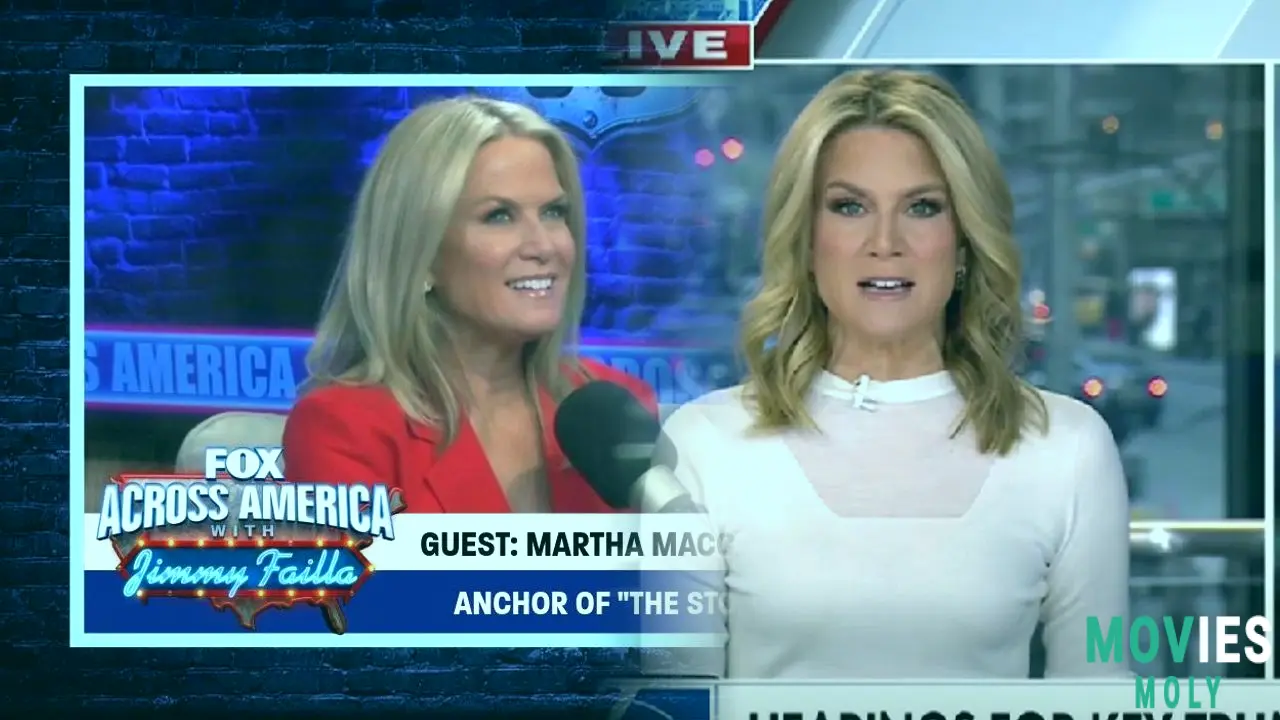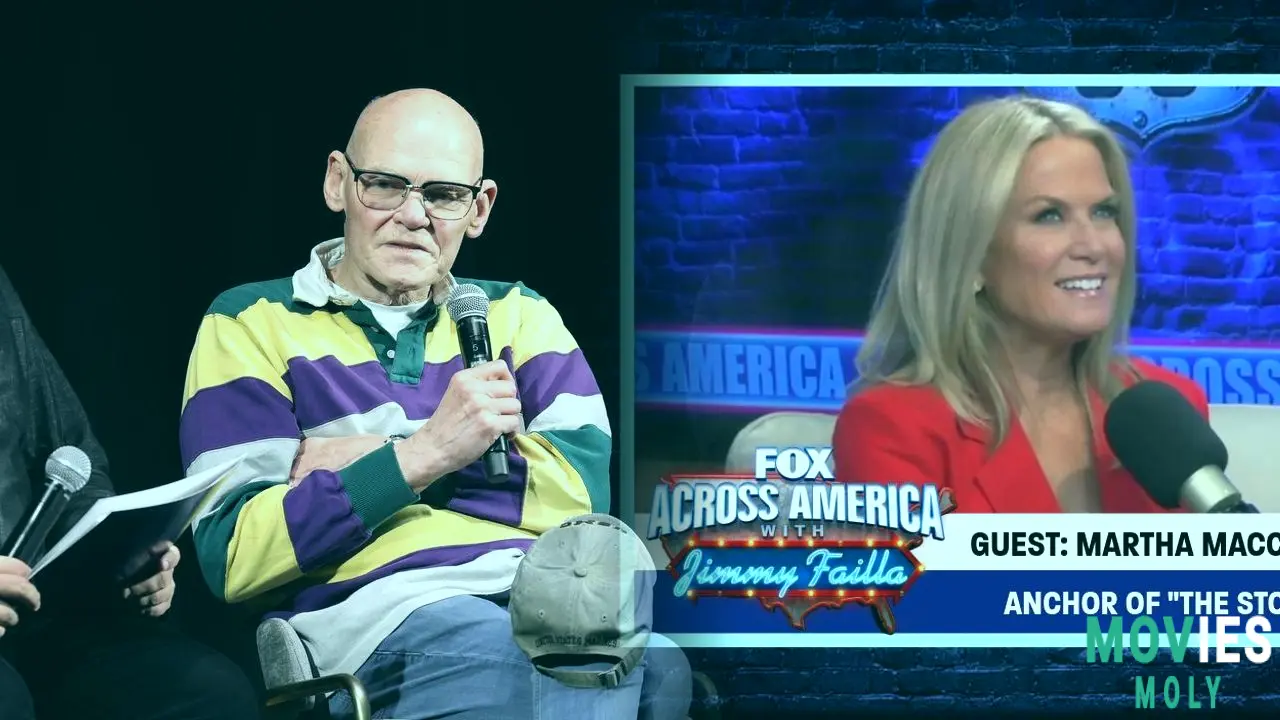I thought about Martha Maccallum's style when I saw her on Fox News recently. She stays calm even when the conversations get very heated. She allows her guests say what they want, but she's always ready to ask a tough question or push back. She made this point plain when she spoke with James Carville, a long-time Democratic strategist, and then again with a Department of Homeland Security official. MacCallum makes sure that her interviews are more than just conversation. She wants to get to the heart of what is being said, and she often asks blunt questions that make you think about the replies.
Carville once talked about what previous President Donald Trump decided to do concerning military action against Iran. MacCallum asked him about how Trump makes decisions. Carville reminded her of how Fox News covered the events leading up to the U.S. invasion of Iraq. He talked about the claims that weapons of mass devastation were being used. "I remember 2002, when this network and everyone else was beating war drums as loud as they could, saying that there was every evidence of weapons of mass destruction." He said that the Bush administration's arguments for the invasion were "of course, a huge lie."
MacCallum quickly pointed to a tape she had showed before. It had David Albright, a specialist on nuclear weapons. He said that when people talked about Iran's nuclear program, they weren't making the same assertions they did about the Iraq War. Carville was not moved. He instantly replied, "Again, you can beat the war drums as loud as you want to." It was a brave thing to say on the air. It proved that MacCallum sometimes gets direct criticism on her own network. She dealt with that by attempting to get the conversation back to what the experts think right now. This indicates that she can keep a conversation going even when it gets awkward.
James Carville's direct accusation of a "giant lie" and MacCallum's calm handling of the situationLooking at the tense exchange on Fox News and what it means for discussions on the air
I especially liked what Carville said about the "giant lie." He didn't give up. "I don't know, but I do know that the government lied to me a lot 22 years ago. Why would I trust this government more than I trust —?" MacCallum tried again to use what the expert said. But Carville kept making his argument. He later said that Tulsi Gabbard, the Director of National Intelligence, had briefed the Senate in March that Iran was not manufacturing a nuclear weapon. Trump has now said this comment is not true. Carville plainly wanted Trump to take his time. He needed a very clear reason for any military action. He said in 2002 and again in 2025 that he was unsure about rushing into war.
It was intriguing how MacCallum responded to Carville's persistent challenges. She didn't speak louder. She didn't try to talk over him. Instead, she worked on getting other people's points of view. She used the expert's study to show that Carville's worries about the past were wrong. This is something she does a lot. She uses data from outside sources and things that have already been spoken to steer the topic. It makes you feel peaceful even when the words are really strong. It makes you aware that even if she is listening, she is also ready to influence the conversation in the direction she wants it to go. Even though they are fairly firm, this makes her interviews feel more like direct conversations than yelling matches.
One of her skills is that she can keep calm under pressure. It lets the spectator pay attention to what is being said instead of how dramatic the encounter is. This peaceful way of doing things can be very helpful in a time when news is often changing and people have strong opinions. It means that even when a guest is directly opposing her network, she is respectful in the conversation. This method probably makes her audience trust her because they want to hear both views without too much drama. It is a very successful but subtle technique to run an interview show.
Martha MacCallum asked a DHS official directly about Trump's change in immigration policy.

Looking at how MacCallum pushes for clarity on changes in the administration's positions
Martha MacCallum also exhibited her direct interviewing approach when she pushed a high-ranking official at the Department of Homeland Security. She asked Tricia McLaughlin, the Assistant Secretary for Public Affairs, about a shift in Donald Trump's immigration policy. This change affected illegal workers in the hospitality and farming industries. MacCallum pointed to a post on Trump's Truth Social from the week before. He had shown sympathy for hotel owners and farmers in it. They depend on undocumented workers who have been there for a long time. Trump said that his "very aggressive policy on immigration" has been taking away "very good, long time workers." He said that these jobs were "almost impossible to replace."
This post made company owners and those who want tough immigration regulations confused. Then, reports said that federal immigration officials had been directed to stop raiding workplaces. These raids frequently happen at farms, motels, meatpacking plants, and other places like that. MacCallum talked to McLaughlin about this. MacCallum added, "I thought this was interesting when the president said this." She said that Trump cared about farmers and hotel owners who had workers with them for 20 or 25 years. He stated it was a tough circumstance and not someone they wanted to pay attention to. McCallum urged McLaughlin to clarify this "changing policy and effort."
McLaughlin said there had "not been a change in posture." She said that they still followed the law. She said that the main goal of worksite enforcement operations was still to "get these criminal illegal aliens out of our country." MacCallum didn't let this go. She quoted Trump again verbatim. "He says we can't send farmers and all their people back," he says. She said, "It sounds like he thinks it's okay for some of them to have been there for a long time and get along well with their bosses." MacCallum then pressed even harder. "But wait a second, Tricia. I just want to go back." He argues we can't send farmers and all their people back since they might not have what they need. He's talking about their papers. So how is that not a little bit of a change?"
McLaughlin maintained repeating that the government was committed to sending back all immigrants who were in the country illegally. She warned there would be "mass arrests" and "mass deportations." She also said that they will "remove violent criminal aliens from this country." MacCallum kept asking for more detailed responses. She wanted to know about a new rule. Trump had added, "We're going to have to get that in order pretty soon." She wanted to know if this indicated that immigrants who worked in farming were safe for the time being. McLaughlin didn't give a clear explanation. This conversation demonstrated how determined MacCallum was. She doesn't just accept generalizations. She keeps asking until she obtains additional details. This is something I truly like about an interviewer. It helps make public comments that are hard to understand clearer.
Senator Bill Hagerty Talks About Political Games And Cabinet Confirmations On Fox News
How Martha MacCallum Handles Legislative Debates and Policy Delays
MacCallum's approach was again on display in her interview with Senator Bill Hagerty. He was on "The Story" to talk about how Democrats were holding up the confirmations of Donald Trump's cabinet members. Hagerty gets right to the point. He said that Democrats were using every regulation they could to make things take longer. He talked about several votes that were taking a long time. He stated, "They're way behind where we were when Obama first took office." He also said they were behind Trump's first term and even Biden's first term as president. He finished by remarking, "I don't think the Democrats got the message."
Hagerty also spoke out firmly in favor of Pete Hegseth's confirmation. He added, "I would definitely support Pete." Hagerty said Hegseth was "very smart, very energetic, and very talented." He believed that Hegseth would "motivate the troops, hire and keep them as he should." Hagerty wanted his coworkers to really think about this and vote for him. In this conversation, MacCallum let Hagerty talk about his point of view and his objections. She didn't cut him off or attack him. This displays a different side of how she interviews people. She lets guests say what they want, especially when they are making a point on political strategy.
In this interview, her job was primarily to listen and give the Senator a chance to speak. It wasn't so much about going against him directly. This can be just as significant. It lets people hear both sides of a political dispute. She still pays close attention to the timing and flow of the talk. She makes sure that the main points are made. I think this balanced way of interviewing works extremely well. It shows all the many kinds of chats she has on her show. MacCallum shows time and time again that she can change the way she asks questions. She fits the guest and the subject. This makes her interviews interesting and useful at the same time.



